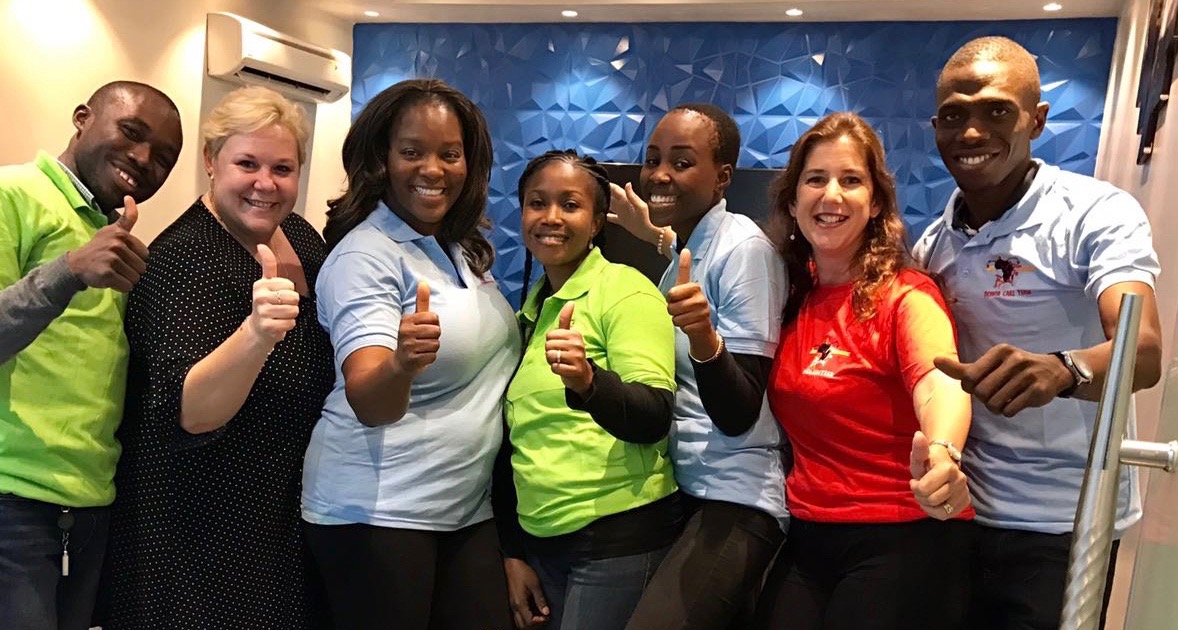Projects in England and Wales win funding to promote organ donation among black, Asian, mixed race and minority ethnic communities
Community and faith-based organisations are joining the campaign to address the urgent need for more lifesaving organ donors from black, Asian, mixed race and minority ethnic backgrounds.
They are launching projects to break down myths and increase support for donation in these communities and ensure that people know that the law in England is changing next spring and understand their choices.
The 26 organisations have secured funding to educate communities about donation after death through the BAME Community Investment Scheme led by NHS Blood and Transplant.
The scheme is part of a Government-funded campaign to address the critical shortage of organ donors from black, Asian, mixed race and minority ethnic backgrounds.

Action on Blood is among the organisations launching projects under the scheme. Its project will train five hair stylists and barbers in black hair salons across London and Essex as ambassadors so they can discuss organ donation with their customers and encourage them to talk to their families.
Abiola Okubanjo, CEO of Action on Blood, said: “We designed the project so that real people in the community would play a fundamental role in empowering others to make a decision about organ donation and share that decision with their families.
“We thought, who better to start the conversation flowing than barbers and hair stylists? It’s at the barber shop or hairdressers’ that arguments are raised or debated, the latest issues are dissected and judged and ultimately, opinions are influenced.
“Through this project we will ensure that it’s the truth that people are debating – not myth, not hearsay, not superstition. We believe it’s only when people know the truth that they can make the right decision.”
As well as promoting donation, each project will have an important role to play in building awareness and understanding of the upcoming law change as well as ensuring that people make their donation decision upon the facts.
From spring 2020 all adults in England will be considered as having agreed to donate their organs when they die unless they record a decision not to donate, known as ‘opt out’, or are in one of the groups not covered by the new law.
An opt out system for organ donation was introduced in Wales in December 2015 and in Jersey in July this year and will also be introduced in Scotland in autumn 2020. Families will still always be involved in organ donation, so it is vital that they know your choice.
Caroline Dinenage, Minister for Care, said: ‘It is fantastic that more people from black, Asian and minority ethnic backgrounds are considering organ donation than ever before. But it is a distressing fact that people from these communities are less likely to get a transplant than if they were white.
“We all have a role to play - the government, communities, families and friends - in breaking down the myths and perceived barriers that surround organ donation. I am delighted to see the projects that will be delivering this vital work as part of our Community Investment Scheme and how they will change attitudes and save lives.”
The Community Investment Scheme was open to any faith or community-based organisation working within black, Asian, mixed race and minority ethnic communities in England and Wales.
Organisations were invited to bid by outlining how their project could positively engage their community in organ donation. All applications were reviewed by an independent judging panel.
This is the second round of the scheme. A progress report covering the first round projects is currently being developed and will be shared with stakeholders in the new year.
Millie Banerjee, Chairman of NHS Blood and Transplant, said: “We know that trusted, community-led or local organisations can make a real difference in dispelling myths, overcoming barriers and changing attitudes to organ donation.
“These innovative new projects will build on the inspiring work of those funded under round one of the scheme, bringing a positive organ donation message to an even broader spectrum of faiths and communities.
“This passion for saving lives will, I hope, encourage more people from black, Asian, mixed race and minority ethnic backgrounds to decide they want to be an organ donor and share that decision with their families.”
The National BAME Transplant Alliance (NBTA) is supporting NHS Blood and Transplant in the campaign to address the need for black, Asian, mixed race and minority ethnic donors, which was launched in summer 2018.
Kirit Modi, Hon President of the NBTA, said: “NBTA is very pleased that 26 new projects to inform black, Asian, mixed race and minority ethnic communities about the change in law and increase donors from these backgrounds have been funded.
“We hope this important work will encourage individuals from diverse backgrounds to make their donation decision and share it with their families and that ultimately will see an increase in the number of black, Asian, mixed race and minority ethnic donors.
“The work of community-led organisations is vital to delivering the facts through trusted messengers. They can help people understand that unless more people from their community come forward as organ donors, patients from their own community will continue to face unequal access to transplants.
“The BAME Community Investment Scheme is an important part of the wider activity and campaign to educate and engage these communities.
“NBTA will continue to work collaboratively with NHS Blood and Transplant and others to develop the community model so that it reaches a wider section of black, Asian and minority ethnic groups across the country in the future.”
Notes
A total of £204,892.73 was awarded to 26 projects. This was funded by the Department of Health and Social Care. A total of 66 funding applications were received. Projects were given the options of completion by June 2020, October 2020 or March 2021.

Have questions or concerns?
Get the facts about the organ donation process, funeral arrangements, faith and beliefs, the opt out system, family involvement and more.
Organ donation law where you live
Organ donation laws vary in different countries across the United Kingdom.

Have you registered your organ donation decision?
It takes just two minutes to register online.
